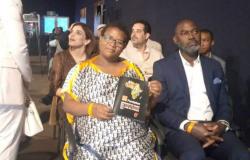
For the arrival of “brother Xi”, Serbia is pulling out all the stops. For several days now, Belgrade has been decked out in Chinese colors. It is true that this visit, the second by the Chinese president, takes on a special dimension. Xi Jinping is expected in the Serbian capital this May 7, 25 years after the American strikes which destroyed the Chinese embassy, killing three journalists. The circumstances and causes of this bombing remain subject to discussion: was it a “blunder”, a provocation, or a targeted shot, the embassy housing Serbian communication devices? Multiple investigations into the matter have not provided definitive answers, but this tragedy marked a turning point in China’s relations with the rest of the world, despite an apology presented the following year by the United States.
Strategic investments
Xi will therefore come to pay his respects in front of the commemorative plaque, before inaugurating the immense Confucius Cultural Center, built on the ruins of the embassy, of which he had already laid the first stone during his previous visit, in 2016. This immense building of ten floors has a facade of 6,000 m2, divided into 1,365 panels forming the symbolic contours of a classic Chinese landscape painting. “This center is the strongest image of Chinese soft power in Serbia and the Balkans, which shows that the ‘middle country’ is a phoenix stronger than ever, capable of standing up to the West”explains Stefan Vladisavljev, researcher at the Belgrade Security Forum.
In fact, China only became interested in the Balkans about ten years after the bombing of its embassy in Belgrade. First to Greece, then very quickly to Serbia. Visiting Beijing in 2009, Serbian Democratic President Boris Tadic opened the doors of his country to China, which invested more than five billion euros there over the decade, particularly in strategic sectors such as copper mines. and gold from the Bor region, bought by the Chinese giant Zijin Mining Group in 2018, or the Smederevo steelworks, the largest in the country, but riddled with debt, passed in 2016 under the control of the Chinese group HBIS, for the modest sum of 46 million euros.
China has thus become Serbia’s second economic partner, behind Germany. Today, a third of foreign direct investment comes from China, or 1.5 billion euros per year.
The country is of course at the heart of the Chinese “New Silk Roads” project, launched in 2013, and since renamed “The Belt and Road”: from the Greek ports of Piraeus and Thessaloniki, which fell into the hands of Chinese economy thanks to the economic crisis, Serbia represents a privileged axis of penetration towards the heart of European markets. “This strategic importance was further strengthened with the war in Ukraine”believes Stefan Vladisavljev.
During the last Belt and Road summit last October in Beijing, boycotted by most European countries due to the presence of Vladimir Putin, Serbia signed a free trade treaty with China. The European Union has made it known that this treaty is incompatible with Serbia’s European integration, but it does not matter for Serbian President Aleksandar Vucic, who is looking for new liquidity in China and is keen to display his political friendship with President Xi.
“Contrary to popular belief, the new Silk Roads are not a Machiavellian program with a clear direction”
Thumbing the nose at Europeans
Indeed, while new agreements should certainly be announced during President Xi’s visit, relations between Beijing and Belgrade are not only economic. While European integration has stalled for years and the war continues in Ukraine, China’s image has never been so good in Serbian public opinion, even better than that of Russia according to several surveys. These figures have been steadily increasing since the Covid epidemic, when the EU banned all exports of paramedical equipment to candidate countries, while Chinese planes delivered masks and surgical gloves to the tarmac of Belgrade airport. . The walls of confined Serbia were then covered with large signs proclaiming “Thank you, Brother Xi!”
The Sino-Serbian convergence is playing out around the two issues of Kosovo and Taiwan. Belgrade can count on Beijing’s support in the Security Council to block any recognition of Pristina, while Aleksandar Vucic does not miss an opportunity to point out that “Taiwan is China”. Attachment to the sacrosanct principle of the territorial integrity of States has everything to bring the two countries closer together in an increasingly unstable world.





